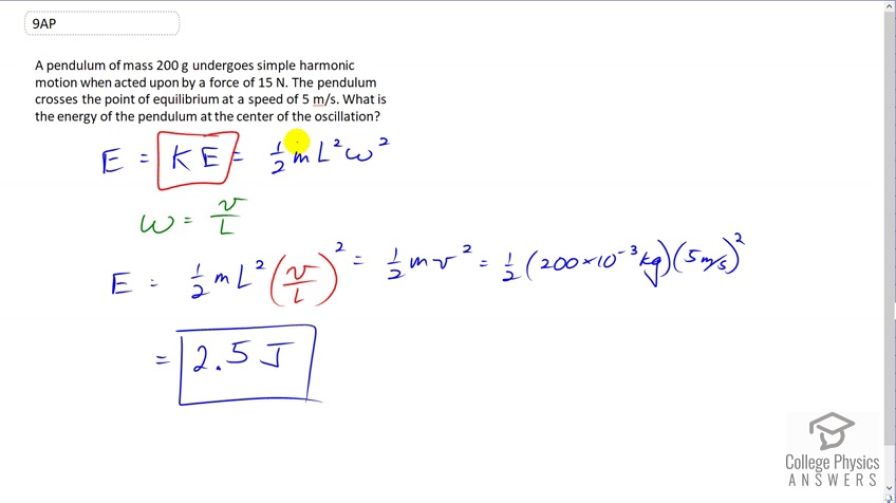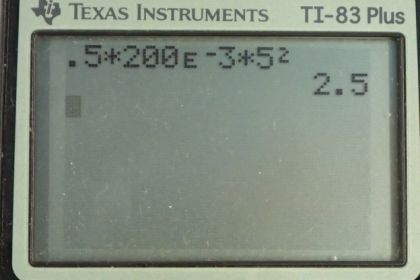Question
A pendulum of mass 200 g undergoes simple harmonic motion when acted upon by a force of 15 N. The pendulum crosses the point of equilibrium at a speed of 5 m/s. What is the energy of the pendulum at the center of the oscillation?
Final Answer
Solution video
OpenStax College Physics for AP® Courses, Chapter 16, Problem 9 (Test Prep for AP® Courses)

vote with a rating of
votes with an average rating of
.
Calculator Screenshots
Video Transcript
This is College Physics Answers with Shaun Dychko. The total energy for a pendulum is going to be all kinetic energy when the pendulum is at the center of its oscillation. It'll have no potential energy there because it is at the bottom of the swing. So its energy is going to be one half mass times its length squared, times its angular velocity squared. We'll substitute v over L in place of omega. This ends up giving us the familiar formula for kinetic energy of one half m v squared. These L squared cancel here. This is one half times 200 grams written as 200 times ten to the minus three kilograms, times five meters per second, giving an energy of two and a half joules.
